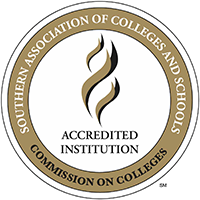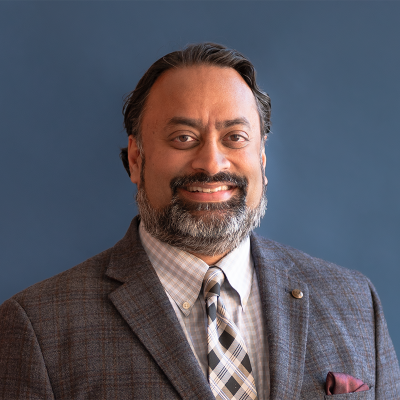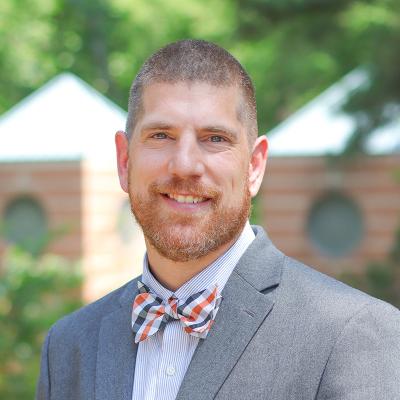Location
Curriculum
48 credit hours
Program Length
as few as 36 months
Accreditation
Accredited by ABHE
Help Those with Addictions — Earn Your MA in Addictions Counseling
Columbia International University’s Master of Arts in Addictions Counseling provides you with general counseling knowledge and skills along with specialized knowledge in addictions counseling that lead to licensure as an addictions counselor in South Carolina and other states. Addictions are a growing problem in our nation, whether it’s substance abuse or behavioral addictions. More trained counselors are desperately needed in this specific area to help those who are struggling with addictions. Employment of substance abuse, behavioral disorder and mental health counselors is projected to grow 22% by 2031, much faster than the average for all occupations. About 43,600 openings for substance abuse, behavioral disorder and mental health counselors are projected each year, on average, over the next eight years.
Upon completion of the program, students will demonstrate the ability to
- Assess and diagnose addictive behaviors.
- Use effectively evidence-based treatments for a wide array of addictive behaviors.
- Create effective treatment and relapse prevention plans
- Create and maintain an addictions counseling practice that follows the legal requirements for record keeping, confidentiality and other professional standards.
- Assess the presence of co-occurring mental and emotional disorders and integrate treatment for addictive behaviors.
Steve Johnson, Faith as an Asset in Times of Perceived Threat
Why Choose Columbia International University
Columbia International University’s MA in Addictions Counseling is taught from a biblical worldview. The program design includes a trauma course that is not often included in an addictions counseling curriculum but is essential, since trauma is often foundational to substance use disorder. The program also covers the treatment of other disorders that often accompany an addiction, such as depression, bipolar and anxiety disorders. This program is grounded in evidence-based interventions with mention of other peer led programs, such as AA, NA, SA, OA and Celebrate Recovery. Some of the professors in this program are leading researchers in the latest effective treatment for severe addictive disorders and popular speakers who train mental health professionals internationally.
Overall Benefits of the Degree
This degree will prepare you to be a competent professional in treating a wide array of addictive disorders, including substance use disorders and current serious behavioral addictions, such as gambling, gaming, pornography, internet, eating disorders, workaholism, kleptomania and the often neglected, but very serious behavioral addictions, such as exercise and suntanning addictions. Since many individuals working in the field of addictions only have a bachelor’s degree, obtaining the Master of Arts in addictions counseling will prepare you to be a supervisor in many treatment centers and perhaps grow into an administrative position. The focus on short-term models for treating addictions will prepare the student to help a larger number of individuals overcome their addictions and help the student to become a sought-out professional in the field.
Featured Faculty
What Will I Study?
- CHP 6112 Crisis Response and Trauma Care
In this course, you will engage in a comprehensive overview of the field of psychological trauma and the way in which trauma affects individuals and systems, grief reactions, and traumatic stress. You will explore such topics as post-traumatic growth, moral injury, post-traumatic stress disorder, vicarious traumatization, and complicated grief. You will learn essential crisis response and trauma care skills and how to employ them in your own ministry setting.
3.00 credit hours
- CNS 5300 Foundations of Growth and Development
In this course, you will examine the development of individuals from conception through old age. Drawing from a biblical framework informed by major theories of human growth, you will learn to conceptualize human biological, cognitive, socio-emotional, and spiritual growth and development and will consider how your understanding can inform the care of others. Course assignments will challenge you to explore your own developmental journey. (3)
3.00 credit hours
- CNS 5310 Counseling Theory 3.00 credit hours
- CNS 5330 Professional Orientation and Ethics
In this course, students study the practice of professional counseling within the context of ethical and legal standards and potential future directions of the field. Information about legal responsibilities and liabilities in the practice of marriage and family therapy is also covered, including research, family law, confidentiality issues, and codes of ethics. The course focus is on the following four areas: Models of ethical decision-making are presented and practiced through case presentations; ethical standards that govern the professional practice of counseling and marriage & family therapy are studied and integrated with personal, theological, and cultural values and professional and legal standards; legal standards that impact the field of professional counseling and marriage & family therapy are examined in light of the realities of daily practice; and the future direction of counseling and marriage & family therapy as a profession and ministry is explored.
3.00 credit hours
- CNS 5415 Research and Statistics
You will learn the fundamental elements of research and statistics so that you can read, understand, and assess published research studies in counseling, including addictions counseling. The goal is for you to be able to assess those treatment models that are evidence-based and the level of strength of the research support for a given model.
3.00 credit hours
- CNS 6404 Short Term Counseling
You will learn the basic model common to short-term cognitive therapies and its application to treating dysfunctional emotions and self-sabotaging behaviors. You will learn cognitive, behavioral, and emotive interventions as well as techniques to help prevent relapse. You will also consider how to integrate your client's faith/spirituality with the basic model and interventions.
3.00 credit hours
- CNS 6405 Psychopathology and Addictions
You will learn the process, procedures, and diagnostic instruments for biopsychosocial assessment and diagnosis of substance use disorders, behavior disorders, and co-occurring disorders in adults and adolescents as well as in special populations. You will also learn the historical, cultural, social, psychological, and spiritual implications of addiction for clients, their families, friends, co-workers, and society.
3.00 credit hours
- CNS 6409 Group Care and Counseling
In this course, you will learn short-term group care and counseling models and receive supervised practice of interventions to address a wide variety of mental, emotional, behavioral, and spiritual challenges commonly found in a church setting. Among the issues considered will be anger, anxiety, depression, spiritual doubt, grief, addictions, chronic pain and other medical conditions, parenting challenges, self-abuse, trauma, and others.
3.00 credit hours
- CNS 6601 Theories of Addictions
In this course, you will be introduced to the theoretical, philosophical, and historical bases on which addiction is explained and treatment and prevention are grounded. You will also study the biological, psychological, and sociological origins of substance use and related behavioral addictive disorders.
3.00 credit hours
- CNS 6602 Assessment in Addictions Counseling
You will learn the process, procedures, and diagnostic instruments for biopsychosocial assessment and diagnosis of substance use and behavioral addiction disorders in adolescents and adults. You will also focus on the social and psychological implications of addiction for clients, their families, friends, co-workers and the society.
3.00 credit hours
- CNS 6603 Interventions and Addictions Counseling
You will be introduced to evidence-based methods and techniques necessary for developing the professional competencies required to work effectively with addicted individuals and their family systems. The course assumes you have no prior experience working with addicted individuals.
3.00 credit hours
- CNS 6604 Treatment Planning and Relapse Prevention
In this introduction to the full spectrum of addiction counseling skills, you will study the conceptualization, diagnosis, formation of a treatment plan, implementation of treatment, and creation of a relapse prevention plan. You will also study the principles and practices upon which skills and competencies are based. You will practice these skills as a major part of your course experience.
3.00 credit hours
- CNS 6605 Psychopharmacology
You will learn psychopharmacology theories of drug abuse, addictions, and treatment. This course will introduce you to basic principles of anatomy, physiology, and pharmacology as applied to the classes of drugs and addictions as well as the effects of drugs on human behavior. The course will also introduce you to the medications developed to support drug treatment, such as methadone, suboxone, and naloxone. Other topics include drug use, distribution, elimination, dose response relationship, and neurotransmitters.
3.00 credit hours
- CNS 6914 Practicum in Addictions Counseling
You will receive supervision of individual and group counseling in an addiction treatment field setting with special focus on criteria for evaluating the acquisition of basic addiction counseling competencies. You will learn to use evaluative criteria for assessing the self and the self in relationship to peers and clients. You will complete a minimum of 150 hours in an addiction treatment setting.
3.00 credit hours
- CNS 6943 Internship in Addictions Counseling 1
You will participate in delivering counseling services in an addiction field setting and receive supervision of your work during weekly seminars at the university or another designated location approved by the university. You will complete a minimum of 150 hours in an addiction treatment setting.
3.00 credit hours
- CNS 6944 Internship in Addictions Counseling 2
You will continue participating in delivering counseling services in an addiction field setting and receive supervision of your work during weekly seminars at the university or another designated location approved by the university. Your goal will be to further develop the competencies needed to be an addiction counselor. You will complete an additional minimum of 150 hours in an addiction treatment setting.
3.00 credit hours
Admission Requirements
- Baccalaureate degree from an accredited institution
- Cumulative undergraduate GPA of 3.0
- An online interview
- Professional Reference
- Application Essay (800–2000 words total, typed) in response to the following items that explore your Christian experience and reasons for applying to the addictions counseling program: Describe your spiritual journey including:
- What life experiences most influenced you to pursue a graduate degree in addictions counseling?
- How do you envision your faith or value system (include specific values important to you) toward those who experience deep mental and emotional pain and at times persistent dysfunctional behaviors exhibited by an individual with an addictive disorder whether a substance use disorder or behavioral addiction?
- Reflect on how your faith or value system guides you through your life when you personally experience mental, emotional, or spiritual pain and suffering.
- Describe how your faith or value system helps you build relationships in community.
Accreditation and Accolades


Career Path Opportunities
Professional uses of the program include:
- Outpatient care centers
- Mental health and substance abuse facilities
- Individual and family services
- Veteran’s Affairs hospitals and clinics
- Psychiatric and substance abuse hospitals and private practice
- Probation and parole agencies
- Jails, prisons and juvenile detention facilities
- Social service agencies
- General medical and surgical hospitals
- Halfway houses
- Detox centers
- Employee assistance programs
- School systems
- Centers for counseling the elderly, children and families
Top FAQs
- Is the program fully online?
-
Yes, the program is fully online except for the practicum and internships, which the student will be able to do in their geographical area with supervision via Zoom from CIU.
- Do I have to be a Christian to enroll in this program?
-
No, while the courses are taught from both biblical and scientific perspectives, being a Christian is not a requirement to enroll in the degree program.
- Will this degree help me get advancement and increase income in my field?
-
Many states have only recently developed certifications and licensure requirements. Few practitioners may be licensed for addictions counseling. Having a Masters can put you at the top of your field. Given the shortage of highly qualified addictions counselors, many opportunities for advancement and better income may result from acquiring CIU’s MA in Addictions Counseling.
- What are the job possibilities in the field of addictions counseling once I complete my degree and the required experience hours in the field?
-
The shortage of qualified licensed addictions counselors is large and growing due to the rise in addictions internationally. Addictions counselors serve in diverse settings, such as addiction treatment hospitals, addiction treatment clinics, prison/jail, detox centers, EAP programs and social service agencies.
- Is there any benefit to getting a 48-credit hour Master of Arts in Addictions Counseling when some other universities only require 36-credit hours?
-
Absolutely, the 48-credit hour MA in Addictions Counseling allows you as a practitioner to take courses that cover not only addictions but also those mental and emotional conditions that frequently occur with an addiction, conditions such as post-traumatic stress disorder, major depression and anxiety disorders. There is more depth on issues that greatly impact someone with an addiction, such as culture, faith, values and family system.
- With an MA in Addictions Counseling, will I only be competent to treat clients with addictions?
-
No, while you will specialize in the treatment of addictions, rarely does a client present with an addiction only, so it is imperative that an addiction counselor be competent in treating trauma-related disorders, major depressive disorder and the wide array of anxiety disorders.
- Wouldn’t a general degree in clinical counseling prepare me just as well as an addictions counseling degree?
-
A general degree in clinical counseling is an excellent choice, but often they do not offer in-depth knowledge about the dynamics of addiction, its causes, and specialized treatment interventions based on the latest research in addictions.
- Will this degree program help me if the state in which I hope to practice addictions counseling only requires a certificate rather than licensure?
-
States differ in the requirements for a certificate in addictions, so it is important to look at the requirements for a certificate in the state you will be practicing. However, CIU’s Master of Arts in Addictions Counseling generally exceeds the requirements for certification.
- Will I get certificates from the Ellis Institute in general psychotherapy as well as a specialized certificate in addictions counseling as part of this program?
-
Yes, the basic certificate in a short-term model for treating addiction is part of a required course in the MA in Addictions Counseling. The student also has the opportunity to complete both the advanced training as well as specialized certificate training program focused on the theory and practice of addictions counseling.
- Do graduates of the program actually obtain licensure?
-
Graduates of the Master of Arts in Addictions Counseling program complete the academic requirements for licensure as an Addictions Counselor in South Carolina. As with all forms of counselors, completion of clinical contact hours is needed in addition to obtain licensure.
- Are there any states that we cannot currently grant licensure?
-
Licensure for any counseling degree is state-by-state and often there is not reciprocity even for someone who is licensed in one state to have their licensure be accepted in another state. Sometimes, the therapist has to be licensed for five years in one state before they can get licensed by another state. Graduates in Counseling anywhere have to check with the licensing board in the state in which they want to practice.
- Do you have any specific addictions counseling accreditation?
-
We are in the process of applying for accreditation through the National Addiction Studies Accreditation Commission (NASAC), which is an accreditation specifically for educational programs in addictions counseling.




